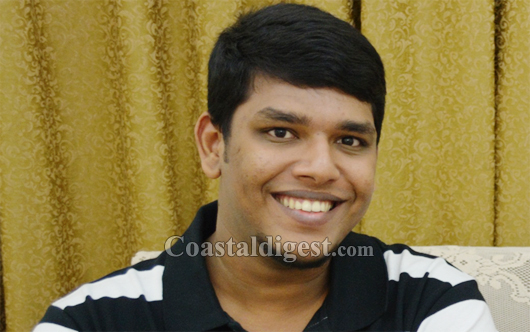Mangaluru, Mar 21: It has been two years since the headless body of Rohit Radhakrishnan (22), a final year student of AJ Institute of Medical Sciences, Mangaluru, was found near Tannir Bavi beech in the city.

The grieving parents are yet to come in terms of the acceptance of the death Rohit who was found murdered on the fateful morning of March 23, 2014. Hailing from Pathanmthitta district of Kerala, Rohit was one and only son of Dr Sreedevi Radhakrishnan and Advocate MS Radhakrishnan.
Even after his parents and relatives running from pillar to post and submitting memorandums, complaints to the highest of the authorities in the state and center, justice is still aloof to Rohit Radhakrishnan.
There were many eyewash enquiries including by the state CB-CID who could not even conclude on the cause of death. The culprits are getting away with the passing of the time, where they are getting all the support from the so called machineries that are supposed protect the life and punish those who take it. As usual this case also getting under the wraps or being forgotten by the media, executive, legislative as well as the judiciary. None of them get hurt by a mother and fathers lose their one and only son due to some criminal minds and their activity.
In spite of having all technology backup in investigating crimes, it is a shame that none of the investigating agencies were able to identify the cause of death even after two long years.
You may recollect that the headless body of Rohit was found at the ditch along with the road side with his head was laying considerable distance from his body and the motorbike he allegedly riding. Two of his friends who were supposed be with him till the last moment claimed innocence and failed to look for him till next day morning after cleaning and clearing Rohit's flat where they visited for a get-together.
The family had raised many questions. But the investigating team could find only very little answers. Most unanswered questions are:
1. If it is an accident claimed by the police, how come a clean cut on the neck while hitting on the trees?
2. What was the logical explanation on riding the bike on undergarments and missing foot-wares?
3. Why the post-mortem video is missing from the submitted records of the evidences?
4. Why his friends didn't search for missing Rohit for 12 hours and why they destroyed evidences by going back to his place of stay?
What is the value of life, if a possible homicide is not being investigated and culprits are brought under justice? Only request from never drying tears of Rohit's parents is justice to the death of their son who was the only reason for their living.




Comments
Indeed very sad incident..This delay is not justified.. everybody failed here, police, media , politician and also the citizens of mangalore.
RIP...for sure nothing is going to happen,, as we can see saffron groups are continuing killing people and hanging in the day light, still concerned depts are mute and no action.. So what you will expect if your son was killed at dark night.
Add new comment